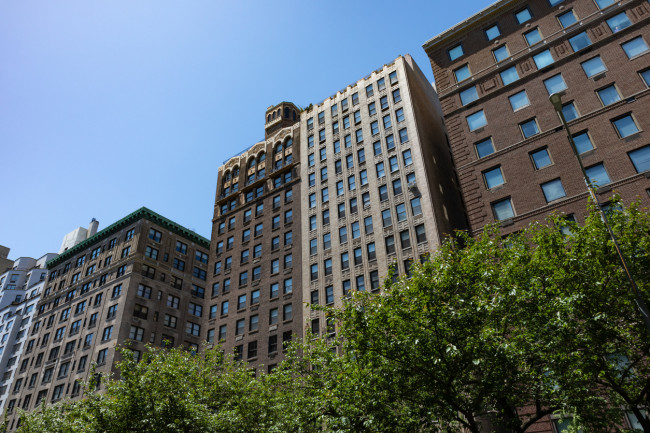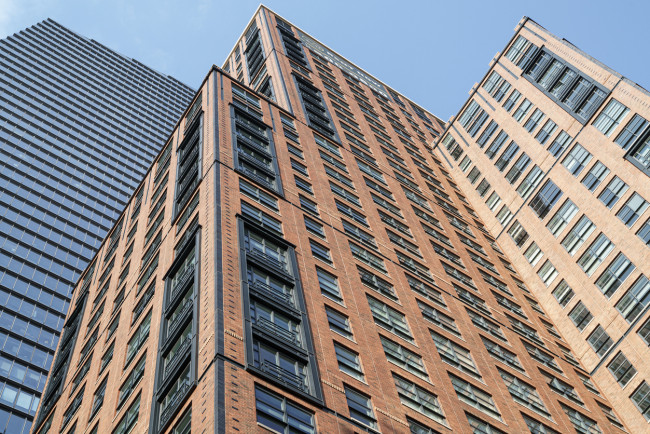Can our board fine shareholders for making too much noise? If so, how much is appropriate?

The house rules will spell out what level of noise constitutes a violation and whether a fine can be imposed.
iStock
“Depending on the house rules in your building—and the proprietary lease if it’s a co-op—your board may be within its rights to fine or take action against residents for excessive noise,” says James Woods, Esq., managing partner at Woods Lonergan PLLC, a Manhattan-based law firm focused on real estate and in particular, buyers, sellers, and cooperative representation.
It’s not uncommon for residents to complain about noisy late night parties, or upstairs neighbors with children roller skating back and forth late at night.
“Noise in an apartment building—and smells for that matter—can be very subjective and it may be difficult to determine the source,” Woods says, but if there are repeated offenses, the board should certainly investigate and take steps to resolve the issue, as the failure to act may expose the board to liability.
“Most people don’t want to go to court, so once residents understand the consequences of disturbing other people in the building, they are often incentivized to comply with the rules,” Woods says.
What is too much noise–and what are the consequences?
Ideally the building’s house rules provide clear guidance on what type of conduct or noisy behavior constitutes a violation and whether a fine can be imposed.
“In a co-op, you should check the provisions in the bylaws and the proprietary lease,” Woods says. The bylaws typically provide whether the board has the authority to fine. A co-op is also governed by the warranty of habitability—requirements ensuring the apartments are safe and livable for all residents—so if the noise is making it unlivable for residents, it may constitute grounds for court action.
“It’s very possible the bylaws authorize the board to fine residents for violations of the house rules, however the house rules might also be silent on this, in which case the board may want to supplement them so the issue is clearly delineated and there is no confusion for unit owners,” Woods says.
In an effort to limit excessive noise, house rules often state renovation work can only be carried out during certain periods of the weekdays. They might also outline evening cut off times for playing loud music. In addition, there may be rules about soundproofing.
For example, house rules typically require 80 percent carpeting on the floors to dampen the transfer of noise.
“If that is the case, a board can inspect apartments for compliance with this rule,” Woods says.
However, with more New Yorkers working from home or having hybrid work schedules there are still plenty of opportunities for conflicts about noise and other nuisances—like the smell of smoke or marijuana.
“Assuming there are provisions in the house rules regarding fines for violations, a board or the management will want to send out a warning letter to the resident causing noise or odors. This memorializes the infraction and begins a paper trail, which might be relevant if the complaints do result in court action,” Woods says.
Proving that noise is unreasonable can be tricky. Sometimes, residents may just simply use their phones to record a video of the noise and where it is coming from. In some instances, they may use professional tests.
Professional noise tests that give a reading in decibels can cost thousands of dollars. In some cases, Woods has seen residents use apps, like Decibel X or Too Noisy Pro, to measure the noise coming from a neighbor’s apartment. While professional noise measurements are typically admissible in court, there’s no guarantee an app measurement will be considered accurate or admissible.
“The use of these apps, however, could be something we see more of in the future and may indeed be an effective deterrent,” Woods says.
The real estate attorneys at Woods Lonergan have decades of experience successfully representing buyers and sellers in every type of transaction. "We mobilize quickly to guide you through every aspect of your purchase or sale, from home inspection to contract negotiations and closing", says managing partner James Woods. To learn more about Woods Lonergan or schedule a free 15 minute consultation, click here of call 212-684-2500
Calculating and imposing a fine
When considering what size fine your board should impose for noise violations, bear in mind that it shouldn’t be overly burdensome.
“Courts are reluctant to uphold penalties where the board is simply extracting money from shareholders or owners,” cautions Woods.
Your board does, however, have a right to cover some administrative costs.
“It’s a delicate balance—you want to send a message that the action is unacceptable but you don't want to unfairly punish people,” Woods says.
Typically, an initial fine for a noise violation might be in the range of $150 or $200 depending on the severity of the situation. This would cover the cost of having building management dealing with the issues and writing letters to the residents involved. It would also act as a deterrent for this kind of behavior.
“It shouldn’t be a fine of several thousand dollars, but if the behavior is repeated or more egregious, the fines could be enhanced,” Woods says.
If the resident shows willingness to change their behavior, your board might decide to waive the initial fine but explain the penalty will be doubled if the noise violation happens again. Woods says this is a technique that’s been successful in a number of the buildings he represents.
“The board feels that it has been heard and the resident in effect gets a free pass but understands there will be consequences if it happens again in the future,” Woods says.
If you take this route and the issue is not resolved, you may face going to court to get a court order to enforce the rights of the other shareholders or apartment owners. In some cases, repeated infractions could even lead to a default under the proprietary lease.
“It is important to always be familiar with your building’s rules regarding noise and odor violations,” Woods says.
James Woods is a partner at Woods Lonergan PLLC. representing New York City buyers, sellers, cooperative corporations, landlords, tenants, contractors, developers, and management companies. To submit a question for this column, click here. For a free, 15 minute legal consultation, call 212-684-2500 or send an email.
You Might Also Like
Sign Up for our Boards & Buildings Newsletter (Coming Soon!)
Thank you for your interest in our newsletter. You have been successfully added to our mailing list and will receive it when it becomes available.





















